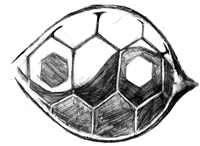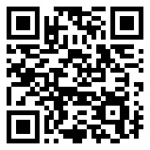So much of the way our experience is structured is not obvious to most of us. Every experience that appears primarily as a distinct sensation, sight, or thought is made of multiple layers. We usually think of the “five senses” but in actuality, we have a lot more. A common one people can spot when it is pointed out is proprioception, the feeling of your body’s position and movement in space. Similarly, when you hear words in a language you speak, your mind instantly and effortlessly parses out grammar and derives meaning, and often unconsciously applies associations and internal reactions.
Many of these layers, these sub-components in perceptual awareness, can become more visible through meditation and observing your experience more closely over time. However, I’ve come to believe that there is an additional and unique layer of experience that I call Experiential Metadata.
Have you ever had a dream where someone you see in the dream looks like one individual, such as your old roommate, but in the dream you know it’s actually your uncle? Better yet, if at some point you become lucid and realize this is a dream without waking up, you suddenly know that everything around you isn’t real and it is all just the content of the dream. Often when this happens, nothing in terms of the sensory experience changes, everything looks the same, except you just know it’s all a dream.
A dream seems to be a unique venue for exposing such metadata. It also hints at one of the more fascinating components of experiential metadata I’ve contemplated. The realism dial. I’ve been fascinated by the descriptions of unordinary experiences people report, from lucid dreams and psychedelic trips to meditative altered states (astral projection, out-of-body experiences) and supposedly viewing past lives. People often report, that during their DMT trip what they experienced was hyper-real, somehow more real than normal day-to-day reality. Similarly, when we dream, no matter how bizarre our dreams are, we experience them as real, until and unless we become lucid, at which point the realism dial, which was set to our “normal” level of reality is suddenly and drastically dialed down to unreal and dreamlike. We at once feel, for lack of a better word, that what we are experiencing isn’t real, and definitely isn’t as real as it felt a minute ago. And it seems imbued in the experience, like a property of it, rather than a component within it. Like metadata in the photos saved on your phone, which contain anything from the resolution and the camera and lens they were taken with, to the GPS location they were taken at.
What is interesting about this dial is that it can misinform us about our experience. If the drug Mescaline commonly produces a lower realism setting, experiences on those trips are rarely confused for some alternate reality and are instead reported as dreamlike. But if DMT reliably dials it up, folks return convinced they really did visit other realms or spoke to other entities, because the experience was saturated with realism, it had a signature, a texture, of being real, and it is this signature of experience that we rely on regularly to distinguish what is real and what is not. And given that we rarely steer away from the “normal” band on the realism spectrum, let alone become aware of the spectrum as experiential metadata, we end up being convinced of the content of a review of past lives, out-of-body, near-death, or astral projection experience. Due to those experience’s realism metadata, they inform us, likely incorrectly, that these experiences have more “reality” than they actually do.
I’ve wondered why the brain has this mechanism. Perhaps it is there to signify the importance of an experience, a way to make sure you pay attention. Perhaps it evolved when dreaming did, or it might just be a fluke of neurochemistry.
I would not be surprised if we eventually map and identify the neural correlates of experiential metadata, and be able to tinker with aspects such as the realism dial it directly. But I think becoming aware of it can help us inspect altered states of consciousness more objectively.



